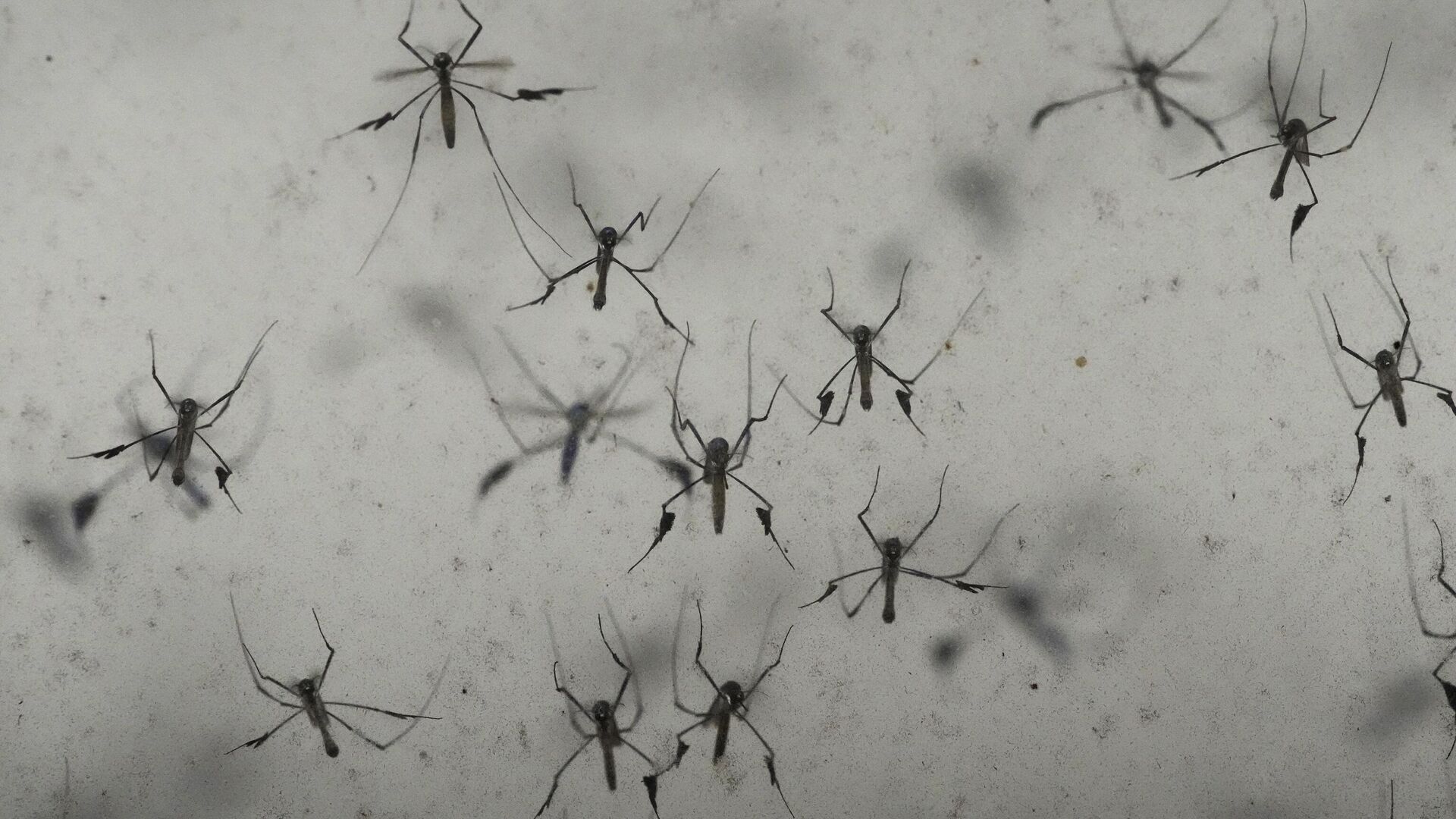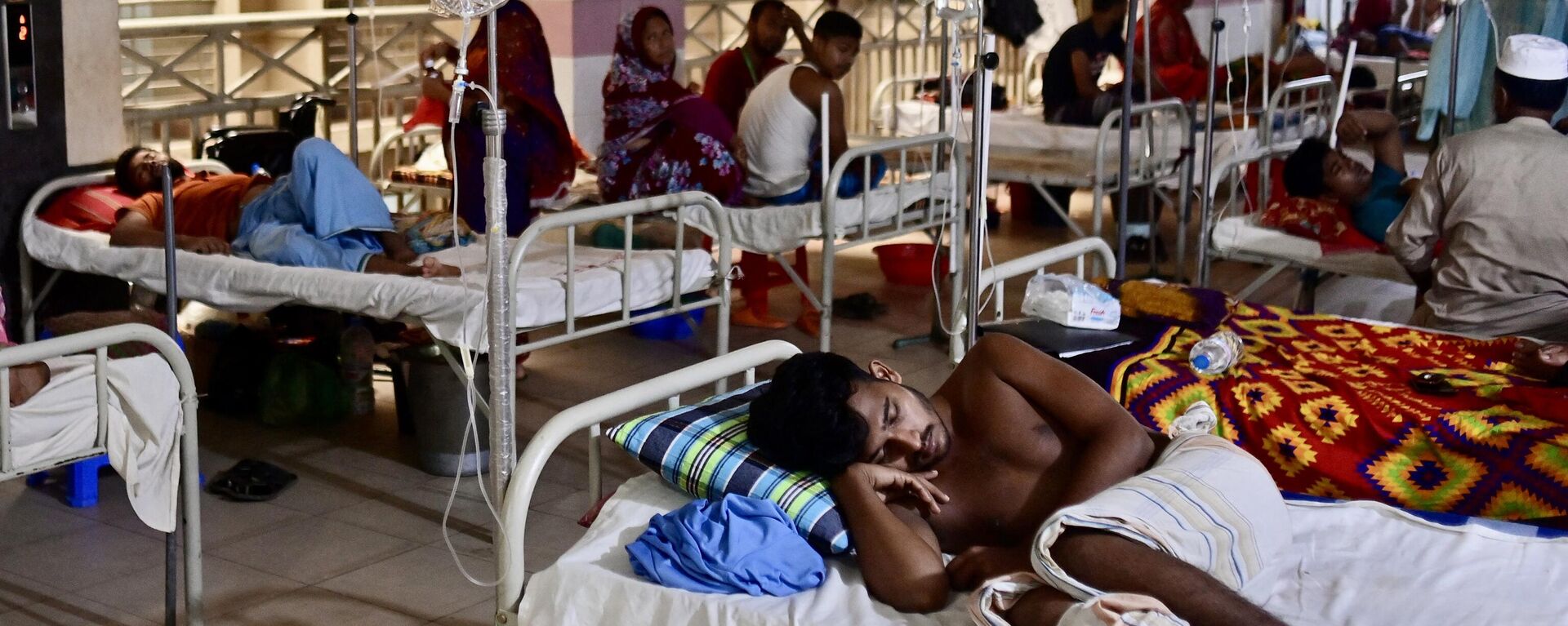https://en.sputniknews.africa/20231021/dengue-fever-kills-over-200-people-in-burkina-faso-in-2023-as-number-of-cases-surges-1062973986.html
Dengue Fever Kills Over 200 People in Burkina Faso in 2023 as Number of Cases Surges
Dengue Fever Kills Over 200 People in Burkina Faso in 2023 as Number of Cases Surges
Sputnik Africa
Earlier this month, the World Health Organization (WHO) said several parts of Africa, the southern United States and southern Europe are at risk of seeing an... 21.10.2023, Sputnik Africa
2023-10-21T15:13+0200
2023-10-21T15:13+0200
2023-10-21T15:13+0200
sub-saharan africa
west africa
burkina faso
health
disease
health ministry
healthcare
world health organization (who)
https://cdn1.img.sputniknews.africa/img/07e7/0a/15/1062975669_0:160:3072:1888_1920x0_80_0_0_1322a9559b519fd1658e52f88ae3ea0f.jpg
Burkina Faso's Ministry of Health has declared an epidemic of dengue fever in the midst of the most fatal outbreak in recent years, with over 200 deaths and rapidly increasing new cases. According to the ministry, there have been 50,478 suspected cases and 214 fatalities from the mosquito-borne illness this year, primarily in the urban centers of the capital city of Ouagadougou and Bobo Dioulasso. The ministry further elaborated that about 20% of the cases and deaths were recorded last week.Against this backdrop, Robert Lucien Jean-Claude Kargougou, Burkina Faso's Minister of Health, announced the provision of free rapid diagnostic tests and urged people to make use of the established testing facilities and screenings. He added that a campaign to spray mosquito repellent products has been initiated in the two towns mostly affected by the outbreak.Kargougou noted that, since September, the dengue epidemic has been accompanied by the appearance of chikungunya, another mosquito-borne disease. He stated that at least 207 cases have been recorded in the country, with no fatalities.Dengue virus is spread by infected Aedes aegypti mosquitoes, which bite people more frequently indoors and during the day. Symptoms of the infection include fever, muscle aches, queasiness, and rashes. In a substandard healthcare environment, the risk of mortality increases as a result of insufficient treatment or misdiagnosis.Dengue fever causes approximately 20,000 deaths annually on a global scale. Since 2000, the incidence rate of the disease has risen by eight times, mainly due to the effects of climate change, population growth and urbanization, according to the WHO. Jeremy Farrar, an infectious diseases specialist of the WHO, has recently warned that dengue fever can become "a big issue in Sub-Saharan Africa." He observed a high probability of the disease becoming endemic in the region, adding that in many countries, hospitals could experience severe strain as a result. Therefore, Farrar recommended that the global community hold proactive discussions regarding dengue and adequately equip healthcare facilities worldwide to handle the increased pressure that will inevitably occur.
https://en.sputniknews.africa/20231006/dengue-fever-to-become-serious-threat-to-africa-us-southern-europe-this-decade-who-says-1062585191.html
west africa
burkina faso
Sputnik Africa
feedback@sputniknews.com
+74956456601
MIA „Rossiya Segodnya“
2023
News
en_EN
Sputnik Africa
feedback@sputniknews.com
+74956456601
MIA „Rossiya Segodnya“
Sputnik Africa
feedback@sputniknews.com
+74956456601
MIA „Rossiya Segodnya“
west africa, burkina faso, health, disease, health ministry, healthcare, world health organization (who)
west africa, burkina faso, health, disease, health ministry, healthcare, world health organization (who)
Dengue Fever Kills Over 200 People in Burkina Faso in 2023 as Number of Cases Surges
Earlier this month, the World Health Organization (WHO) said several parts of Africa, the southern United States and southern Europe are at risk of seeing an increase in dengue cases as warmer temperatures favor mosquitoes carrying the infection. In 2022, the agency reported at least 4.2 million cases of dengue infection worldwide.
Burkina Faso's Ministry of Health has declared an epidemic of dengue fever in the midst of the most fatal outbreak in recent years, with over 200 deaths and rapidly increasing new cases.
According to the ministry, there have been 50,478 suspected cases and 214 fatalities from the mosquito-borne illness this year, primarily in the urban centers of the capital city of Ouagadougou and Bobo Dioulasso. The ministry further elaborated that about 20% of
the cases and deaths were recorded last week.
"We note that from January 1 to October 15, 2023, a total of 50,478 suspected cases [of dengue fever] were reported, including 25,502 probable cases and 214 deaths," the ministry said in a press release, adding: "[...] for the period alone from October 9 to 15, 2023, a number of 10,117 suspected cases were notified, including 4,377 probable cases and 48 deaths."
Against this backdrop, Robert Lucien Jean-Claude Kargougou, Burkina Faso's Minister of Health, announced the provision of free rapid diagnostic tests and urged people to make use of the established testing facilities and screenings. He added that a campaign to spray mosquito repellent
products has been initiated in the two towns mostly affected by the outbreak.
"To respond effectively to this health situation, a certain number of actions have been taken, including free rapid screening tests in public health structures," he said.
Kargougou noted that, since September, the dengue epidemic has been accompanied by the appearance of chikungunya, another mosquito-borne disease. He stated that at least 207 cases have been recorded in the country, with no fatalities.
Dengue virus is spread by infected Aedes aegypti mosquitoes, which bite people more frequently indoors and during the day. Symptoms of the infection include fever, muscle aches, queasiness, and rashes. In a substandard healthcare environment, the risk of mortality increases as a result of insufficient treatment or misdiagnosis.
Dengue fever causes approximately 20,000 deaths annually on a global scale. Since 2000, the incidence rate of the disease has risen by eight times, mainly due to the effects of climate change, population growth and urbanization, according to the WHO.
Jeremy Farrar, an infectious diseases specialist of the WHO, has recently warned that dengue fever can become "a big issue in Sub-Saharan Africa." He observed a high probability of the disease becoming endemic in the region, adding that in many countries,
hospitals could experience severe strain as a result.
Therefore, Farrar recommended that the global community hold proactive discussions regarding dengue and adequately equip healthcare facilities worldwide to handle the increased pressure that will inevitably occur.


